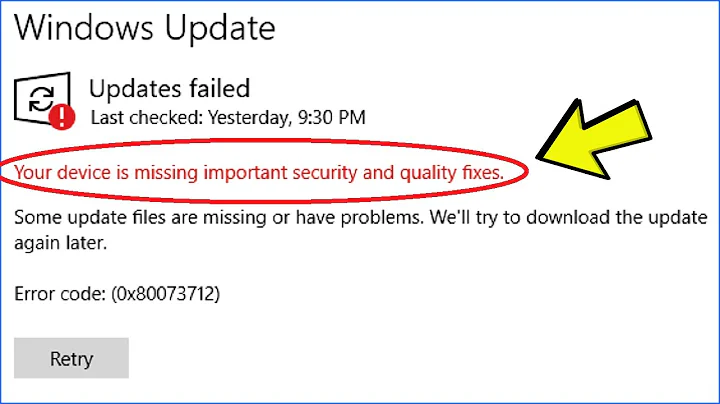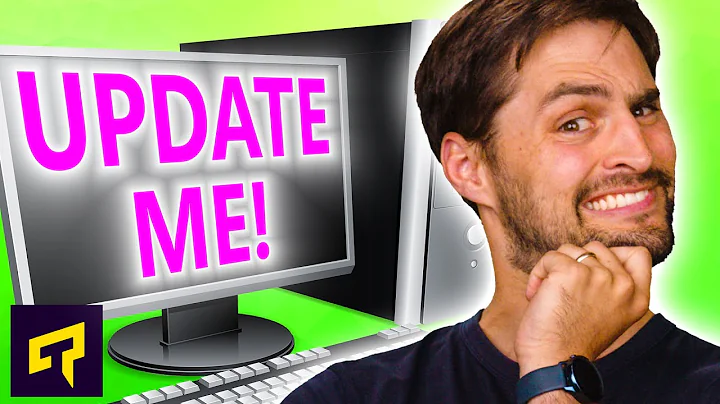Why don't you need to update drivers? (Or do you?)
Solution 1
Driver updates occur when the kernel is updated, with each version of a new kernel new features (and bugs :) in drivers are introduced and bugs are fixed. You can read the kernel's changelog if you want to see what changed, e.g. for kernel 3.3.7, also posts in the Linux Kernel Mailing List, e.g. Linux 3.4 released. KernelNewbies also provides information on those new features in an easier way to read than the changelog (e.g. kernel 3.4).
If you use "out-of-tree" drivers (e.g. binary blobs, like nVidia/ATI), then those drivers will obviously not be updated with the kernel; it's up to their developers to release new versions that work with newer kernels, and up to you (or to your distro's repositories) to upgrade them.
Solution 2
There are two types of drivers in distributions: compiled in kernel (and/or distributed in the same package) and distributed as kernel modules in separate packages. Most distributions when you perform system update updates all of the installed packages including packaged kernel modules and kernel itself, so whole update process is invisible to user.
Solution 3
The "normal" drivers are being taken care of by the normal operating-system upgrades. During minor release updates the version of the drivers may change a bit.
For firmware of your hardware-eqipment (BIOS, RAID-Controller, harddisks, backplane, fibre-channel-cards, network-cards) you have to take care yourselv.
This mostly applies to servers. On PCs - upgrade if you need a feature or a bug-fix (normally BIOS).
Somewhere in between are Intel-CPU-microcode-updates. They are normally applied by the BIOS, but can also be applied by the operating system (microcode_ctl is one of the services doing such a thing). The microcode in the OS is normally being updated during minor release changes.
But: You can also go directly to Intel, download the tar-file and place it onto linux - then you will have the newest available version (again - if you need it).
Related videos on Youtube
camilla.greer
Updated on September 18, 2022Comments
-
camilla.greer over 1 year
Why one does not need to update Linux drivers? Is it due to the open source community building good drivers before they are submitted to the kernel, or do driver updates occur when I do normal system updates or something?
-
 Admin almost 12 yearsThe whole idea that you need to regularly update drives is a bit annoying in the first place. If you don't count updates related to security issues/bugs, then why should you need to update your drivers? If your hardware doesn't change, why would you need to change the software that facilitates your interaction with it.
Admin almost 12 yearsThe whole idea that you need to regularly update drives is a bit annoying in the first place. If you don't count updates related to security issues/bugs, then why should you need to update your drivers? If your hardware doesn't change, why would you need to change the software that facilitates your interaction with it. -
 Admin almost 12 yearsFollow you constructor's updates, if there's a security fix, update. If you find a fault and it's fixed, update. It's a PITA but it's the best way to do it. Organisation becomes critical at this point. Or you can just ignore this problem and never update your drivers.
Admin almost 12 yearsFollow you constructor's updates, if there's a security fix, update. If you find a fault and it's fixed, update. It's a PITA but it's the best way to do it. Organisation becomes critical at this point. Or you can just ignore this problem and never update your drivers. -
 Admin almost 12 years@zoredache Well then why do Windows drivers need updating all the time? Your comment about the static nature of hardware arms to apply there as well.
Admin almost 12 years@zoredache Well then why do Windows drivers need updating all the time? Your comment about the static nature of hardware arms to apply there as well. -
 Admin almost 12 years@rob.g.greer, I would argue that it often doesn't need to be updated. The only driver I do update is for my video card, and that is these days the video card 'driver' is that because these days it released with a ton of other software that is less stable and is frequently updated to be optimized with newly released games and so on.
Admin almost 12 years@rob.g.greer, I would argue that it often doesn't need to be updated. The only driver I do update is for my video card, and that is these days the video card 'driver' is that because these days it released with a ton of other software that is less stable and is frequently updated to be optimized with newly released games and so on.
-
-
Aki almost 12 yearsFor other systems, it occurs when you update the whole system (re-install).
-
KillerSpaz almost 12 years
-
Renan almost 12 yearsKernelNewbies is pretty neat.




